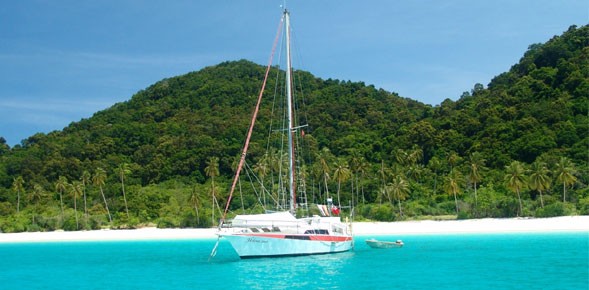In 2023, the tourism sector in Southeast Asia experienced significant growth, led by Thailand and Vietnam. The region has shown a strong post-pandemic resurgence, marked by an increase in international tourism.
Southeast Asia’s tourism industry experienced a strong recovery in 2023, with the international arrivals, aviation and hospitality sectors showing encouraging trends. This positive outlook is the result of strong performance in 2022 and the continued efforts of Southeast Asian governments to increase tourism. Key developments include the ASEAN Framework Agreement on the Facilitation of Cross-Border Transport of Passengers by Road Vehicles, which aims to streamline cross-border movement of tourists and facilitate land travel between ASEAN countries; , including enhanced connectivity for tourism. Moreover, partnerships such as the Lancang River-Mekong Tourism and Cities Cooperation Alliance, which includes Cambodia, Laos, Myanmar, Thailand, Vietnam, and China, demonstrate a regional approach to tourism development.
Malaysia had the highest number of foreign tourist arrivals in the region, recording around 26 million visitors from January to November. Thailand followed suit, welcoming around 24.6 million tourists during the same period.
Vietnam also attracts a lot of tourists from overseas, with the country receiving 12.6 million foreign tourists annually. While this number was significant, it was still about 70% of pre-pandemic levels. The country’s main tourists include South Korea, mainland China, Taiwan, the United States, and Japan.
Tourism recovery rates in Southeast Asia varied by country. Cambodia has shown remarkable recovery, almost reaching full recovery of 92.48%. Vietnam and Indonesia also had high response rates of 82.25% and 74.11%, respectively.
Southeast Asia offers a rich array of experiences for travelers. In Vietnam, tourists can enjoy cultural activities such as exploring Hanoi’s Old Quarter, meeting local artisans, and touring historic sites such as the Cu Chi Tunnels. Thailand offers a variety of itineraries that combine attractions such as the vibrant city life of Bangkok, the mountains of Chiang Mai and the lush nature of Kanchanaburi. Cambodia offers unique experiences, from exploring the Angkor temples to visiting the beaches of the south. These destinations are more than just tourism. We offer an immersive cultural experience, including exploring iconic movie sets and participating in local arts and crafts.
Tourism trends in Southeast Asia are evolving, with increased interest in wellness and nature travel. This shift reflects changing tourist preferences post-pandemic, with people increasingly seeking wellness and outdoor experiences. For example, Avana Retreat in Vietnam offers a combination of wellness services such as yoga classes, spa treatments, nature walks, and local cultural tours. This trend is in line with the global focus on mental health and wellbeing, positioning Southeast Asia as a top wellness destination.
The reopening of China’s borders is expected to greatly contribute to the recovery of Southeast Asia’s tourism industry. Expectations are high that Chinese tourists will return to the region, and airlines are preparing to restore and increase flights. The move is particularly notable given the International Monetary Fund’s prediction that Southeast Asia will recover strongly in 2023 despite the global economic downturn. Rising vaccination rates and a desire to return hospitality and travel to pre-pandemic levels are expected to increase the region’s competitiveness to attract major international tourism markets. Additionally, technological advancements such as VR destination simulators, AI-based personalized travel accommodations, and metasearch engines are poised to improve the travel experience and provide a competitive edge in the evolving tourism landscape.

Vicky is the co-founder and editor-in-chief of the TravelDailyNews Media Network. She is also responsible for day-to-day operations and financial policy. She holds a Bachelor’s degree in Tourism Business Management from the Athens University of Technology and a Master of Business Administration (MBA) from the University of Wales. She has many years of experience in the travel industry, both academic and industry. She has written/edited numerous articles in various tourism magazines.

